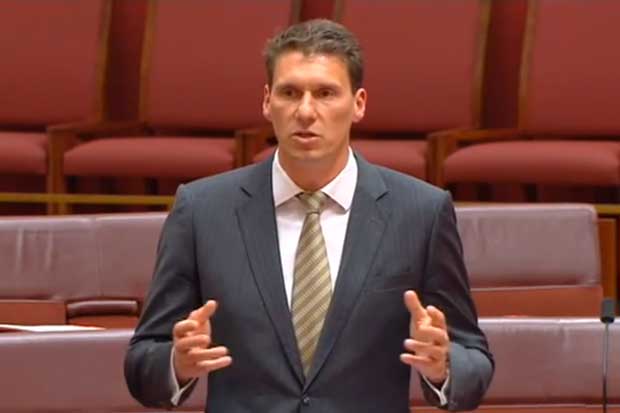Halal certification assists in job and wealth creation, particularly in regional areas, and those voicing opposition to the process have “a lack of understanding” about how it works, according to a government department.
In a detailed rebuttal to arguments circulated by anti-halal activists, the Department of Industry and Science bluntly rejected the accusation that the process – by which foods are certified as appropriate for practicing Muslims to consume in line with religious specifications – imposes any kind of tax on other consumers.
“While the department acknowledges community concerns in relation to halal certification, the department considers that many of these concerns arise from a lack of understanding about how certification schemes operate and existing protections under Australian Consumer Law,” it said.
The comments were made in a submission to an ongoing Senate Inquiry into food certification convened with the support of Coalition Senator Cory Bernardi, who has previously aired concerns about the halal process.
The Inquiry has been flooded with submissions from members of the community rehashing arguments made by anti-halal social media campaigners.
But the Department of Industry and Science said the ability of businesses to demonstrate attributes of food products through certification processes such as kosher, halal, and organic was important to help Australian producers expand into emerging Asian and Middle East markets, which would have a flow on effect on local jobs.
“Obtaining halal certification is a voluntary third-party certification that businesses undertake at their choosing, usually to promote the attributes of their food products and to access new growth opportunities in export markets,” it said.

The comments were echoed by the Department of Agriculture, which said the value of Australian red meat alone to key nations requiring halal certification was $1.4 billion in 2013/14.”
Despite the ongoing economic importance of halal certification, Australian businesses have continually been targeted by members of the community angry they have chosen to have their food approved.
In some cases the attacks have even been extended after rumours were circulated on social media about businesses which have not sought certification.
Campaigners have regularly argued that the cost of certification is passed on to non-Muslim consumers, despite the fact some companies have said the cost of certification represents as little as 0.003 per cent of their total cost of doing business.
The Australian Food and Grocery Council, representing Australia’s packaged food, drink, and grocery manufacturers, has said the costs of halal certification are unlikely to drive up consumer prices.
In its own submission to the inquiry the Council said businesses choose halal certification where they believed it will create more value than it will cost. It said while businesses were free to pursue halal certification or not, the anti-halal campaign was having a negative impact on its members.
“Companies should not, in contrast, be coerced into decisions by threats of abusive campaigns or secondary boycotts. AFGC members have voiced concerns over the impact on consumer contact staff in particular of abusive anti-halal calls and mail – such behaviour should neither be encouraged nor condoned by this Inquiry.”
The Council suggested improvements to the halal processes to make it cheaper, more efficient, and more transparent, but was careful to add the comments applied to food labelling schemes more broadly.
The Senate Inquiry has published over 660 submissions so far, the overwhelming majority of which relate to halal.
Its final report is due November 30.
Donate To New Matilda
New Matilda is a small, independent media outlet. We survive through reader contributions, and never losing a lawsuit. If you got something from this article, giving something back helps us to continue speaking truth to power. Every little bit counts.




